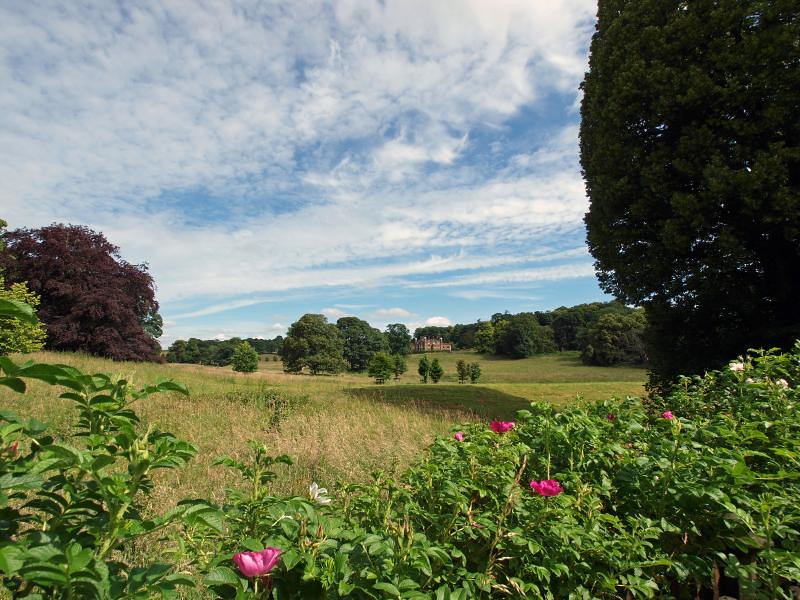ST JOHN THE BAPTIST. Below the A5 road in the SE corner of the grounds of Markyate Cell, reached from the E by an avenue of elm trees. Thin embattled W tower of red brick with blue brick chequer, and nave of 1734, enlarged by aisles with arched windows in 1811; chancel 1892. The arcades inside have roundheaded arches. The octagonal piers look decidedly later than 1811. Curved W gallery on thin iron columns.
Markyate. Roman soldiers marched down its street, and long after them black-robed nuns here found a retreat until Henry VIII gave their house to one of his favourites. Traces of this history are before us. The houses line the Roman Watling Street as it passes into Bedfordshire, and in the park surrounding Markyate Cell, the red house beyond the village, are magnificent trees which would be saplings when Humphrey Bourchier pulled down the nunnery and set up his Tudor house. It has been much rebuilt since then, but in the 16th-century kitchen walls are stone mouldings from the church of the nuns.
A row of giant limes leads us to an 18th-century church, with a handsome gallery, a carved pulpit, and two elegant chairs. The chancel was added in 1892. It has a stone cut with a flowery cross which came from the nunnery, and a tabernacle with painted saints from Italy. It was to this church that the poet Cowper came as a boy when at Dr Pitman’s school in the village; he was here for two years, unhappy and ill-treated, and long afterwards he hated schools and wrote a long tirade against them in a poem called Tyroeinium, in which come these lines:
Lascivious, headstrong, or all these at once;
That in good time the stripling’s finished taste
For loose expense and fashionable waste
Should prove your ruin, and his own at last;
Train him in public with a mob of boys,
Childish in mischief only and in noise.
Flickr.

No comments:
Post a Comment